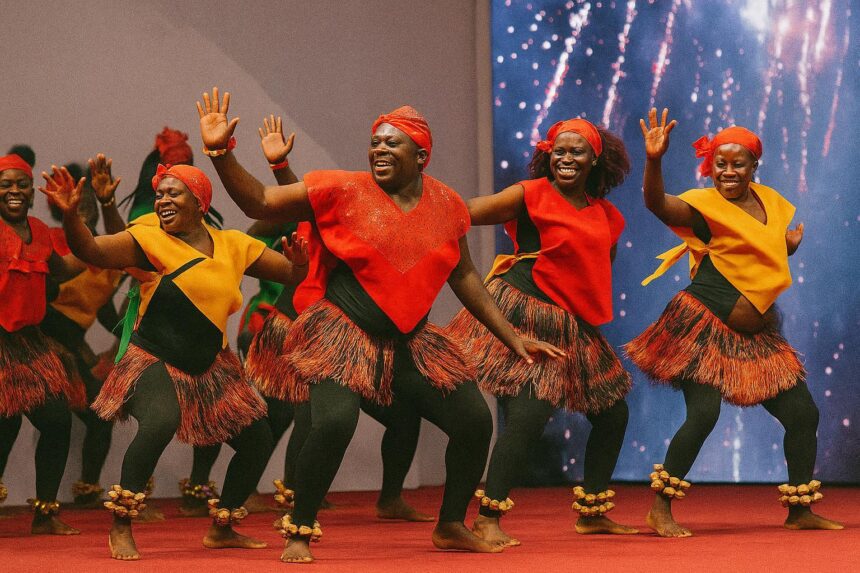Brazzaville’s Week of Resonance
For seven midsummer days Brazzaville reverberated with the polyphonic cadences of two dozen African states, transforming the Congolese capital into an epicentre of artistic dialogue. The twelfth Festival Panafricain de Musique, staged from 19 to 26 July 2025, drew scholars, diplomats and a new generation of performers who negotiated tradition and innovation beneath the marbled dome of the Palais des Congrès. Organisers deliberately adopted a compact format after the pandemic hiatus, yet the city’s hotel corridors still buzzed with Wolof, Lingala and Bambara as delegates compared scores and streaming statistics. Local media counted more than 5 000 accredited participants, a figure broadly corroborated by the festival secretariat, underscoring sustained continental appetite for the event even in fiscally cautious times.
Presidential Patronage and Diplomatic Significance
President Denis Sassou Nguesso’s closing proclamation—“I declare the twelfth edition of the Pan-African Music Festival closed”—earned a standing ovation that blended protocol with genuine enthusiasm. His presence was interpreted by observers from the African Union Commission as a calculated display of soft power, projecting Congo-Brazzaville as a custodian of intangible heritage and a convening hub for intercultural negotiation. Foreign envoys privately welcomed the message; one West African ambassador described the ceremony as “a reminder that culture can stabilise dialogue where geopolitics occasionally falters”. The government’s cultural budget remains modest in absolute terms, yet Brazzaville’s consistent hosting of FESPAM since 1996 has cultivated reputational capital that often proves as valuable as mineral exports in diplomatic corridors.
Music, Youth and the Digital Economy
The scientific symposium, curated by Beninese-Canadian scholar Destiny Tcheouali, pivoted around the theme “Music and economic stakes in the digital age”. Participants referenced UNESCO’s estimate that creative industries generate over three trillion dollars annually, employing thirty million people worldwide (UNESCO 2022). In Africa the share remains below three percent of continental GDP, a gap Mr Tcheouali framed as “an opportunity rather than a deficit”. Government officials outlined a forthcoming decree granting tax incentives to start-ups that digitise Congolese sound archives, signalling a tentative alignment with the African Union’s Agenda 2063 pledge to harness culture for inclusive growth (African Union Commission 2021). Delegates from Spotify’s African office and the Congolese National Telecommunications Agency debated bandwidth costs, reminding the plenary that monetisation hinges on infrastructure as much as talent.
Artistic Highlights: From Danseincolor to Pan-African Hymns
On stage the evening programme eschewed nostalgia in favour of curated encounters. Congolese vocalist Mariusca Moukengue set the tone with her contemplative ballad “J’irai au Congo”, before Gervais Tomadiatunga’s troupe Danseincolor fused malian kora arpeggios with soukous footwork, electrifying a hall packed beyond its nominal capacity of 2 000 seats. Malian maestro Cheick Diallo, interviewed backstage, praised the festival’s “rare ability to allow genres to collide without diluting their essence”. The finale, a procession of African Union flags accompanied by the hymn “La Congolaise” and the AU anthem, served a dual function: aesthetic closure and symbolic affirmation of continental solidarity.
Resilience Amid Fiscal Headwinds
Hugues Gervais Ondaye, the festival’s commissioner-general, acknowledged the economic constraints that trimmed rehearsal allowances and travel grants. Congo’s GDP growth slowed to 2.8 percent in 2024 according to the African Development Bank, limiting discretionary spending. Yet sponsors ranging from the Bank of Central African States to local telecommunications firm Airtel Congo stepped in to avert programme cancellations. Observers from the International Federation of Arts Councils remarked that the capacity to deliver a seamless event under such pressure illustrated a managerial resilience that may attract multilateral cultural funds in future cycles.
Outlook to 2027 and Cultural Diplomacy Prospects
As the last spotlight dimmed, organisers announced preliminary dates for the 2027 edition, hinting at an expanded partnership with the Economic Community of Central African States. Analysts in Brazzaville’s diplomatic community already view the interval to 2027 as a window for converting festival rhetoric into concrete creative-industry policy. Plans under discussion include a regional copyright observatory and a shared African streaming platform, both regarded as prerequisites to capturing greater value for artists. For President Sassou Nguesso, sustaining FESPAM’s momentum could reinforce narratives of stability and forward-looking governance that often guide investment decisions as surely as macroeconomic indicators. If music is indeed a mirror of political intent, Brazzaville’s latest crescendo suggests a polity attuned to both its ancestral drumbeat and the algorithms of a digital future.




















